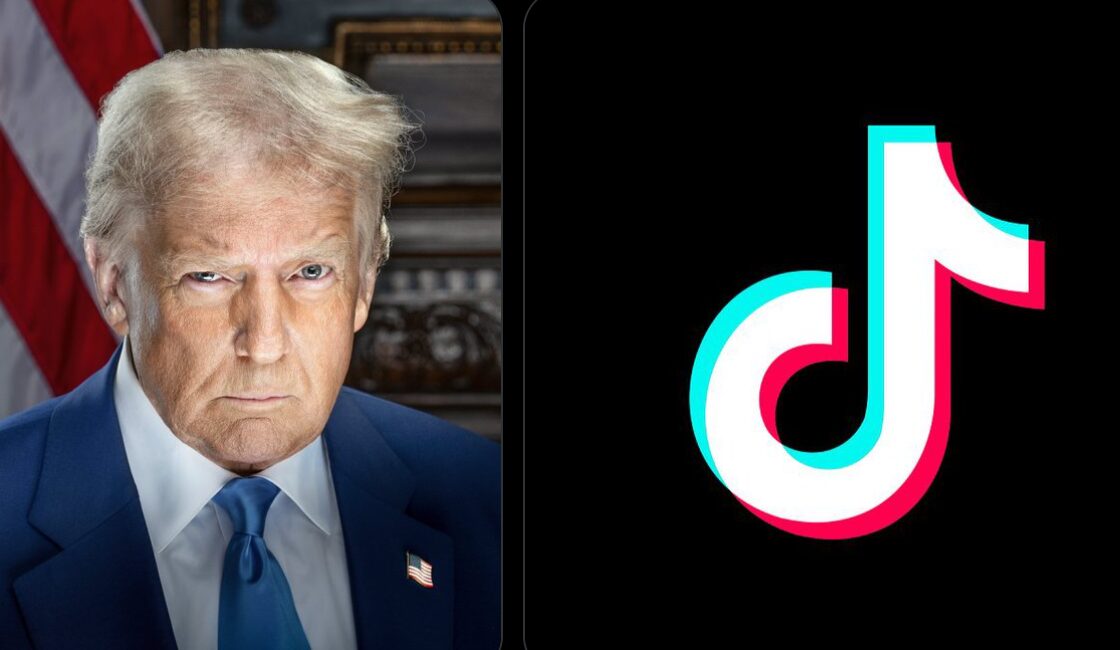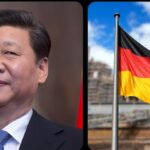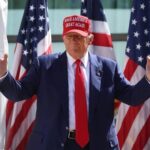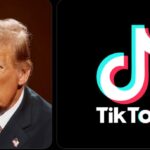President-elect Trump to issue executive order to delay TikTok ban
As the world continues to grapple with rapidly evolving technology and geopolitical tensions, one of the most talked-about topics in recent months has been the future of TikTok in the United States. The popular social media app, owned by the Chinese company ByteDance, has faced mounting pressure from the U.S. government due to national security concerns. In light of these ongoing discussions, President-elect Donald Trump has announced his intention to issue an executive order to delay the much-anticipated TikTok ban. This move is seen as a critical development in the ongoing saga surrounding the app’s operations in the U.S. and its potential impact on millions of American users.
The Trump administration had previously stated that it was considering a full ban of TikTok, citing concerns that the app could pose a threat to U.S. national security. The key concern revolves around TikTok’s data collection practices and its alleged ties to the Chinese government. These fears have led to a series of legal battles and diplomatic tensions between the U.S. and China. Now, with President-elect Trump preparing to issue an executive order to delay the ban, many are questioning what this means for TikTok’s future in the U.S. and the broader implications for tech companies operating in the country.
Understanding the Context Behind the TikTok Ban
The controversy surrounding TikTok began in 2020 when President Trump issued an executive order to ban the app unless its ownership was transferred to an American company. The U.S. government argued that TikTok’s data collection practices were a significant national security risk. The app collects a wide range of personal information, including location data, browsing habits, and device information. The concern was that this data could potentially be accessed by the Chinese government, posing a threat to American citizens and national security.
TikTok, on the other hand, has repeatedly denied these accusations, stating that it stores U.S. user data in the United States and that it is committed to transparency and privacy. Despite these reassurances, the Trump administration remained firm in its stance, pushing for a forced sale of the app’s U.S. operations to an American company, with Oracle and Walmart emerging as potential buyers.
The legal battles that ensued were complex and filled with uncertainty, with various court rulings either blocking or delaying the ban. The situation left TikTok users and stakeholders in a state of limbo, unsure about whether they would be able to continue using the app in the future. In the midst of this uncertainty, President-elect Trump’s decision to delay the TikTok ban has raised eyebrows and prompted further speculation about the long-term future of the app in the U.S.
What Does the Delay Mean for TikTok Users?
For TikTok users in the U.S., the announcement of a delay offers a glimmer of hope. While it remains unclear how long the delay will last or what the final outcome will be, it provides some temporary relief to the millions of Americans who use the app daily for entertainment, education, and business purposes. The app has become a cultural phenomenon, with viral trends, influencers, and businesses relying on its platform to reach a broad audience.
The delay in the ban also means that TikTok will likely continue to operate in the U.S. for the time being, giving users the chance to keep creating and sharing content. Many influencers and creators have built successful careers through TikTok, and a ban would have disrupted their livelihood. Additionally, small businesses that use TikTok as a marketing tool would also be impacted by such a drastic move.
However, the delay does not guarantee that a ban will not happen in the future. While it provides some breathing room, the core issues related to data privacy and national security remain unresolved. It is possible that President-elect Trump’s executive order is part of a broader strategy to negotiate with ByteDance and other stakeholders to reach a solution that addresses these concerns while allowing TikTok to continue operating in the U.S.
The Broader Implications for U.S.-China Relations and Technology Companies
The TikTok ban is part of a larger geopolitical struggle between the U.S. and China, particularly in the realm of technology. The U.S. has been increasingly wary of Chinese technology companies, fearing that they could be used as tools for espionage or data theft. This concern has led to a broader push to limit the influence of Chinese companies in the U.S. market.
The delay of the TikTok ban could signal a shift in the approach to Chinese tech companies. It may be an indication that the U.S. government is willing to take a more measured approach, exploring diplomatic solutions or further negotiations with companies like ByteDance. At the same time, it could be seen as a way to avoid further escalating tensions with China, which has already responded to U.S. actions against its companies with retaliatory measures.
For other tech companies, the situation with TikTok is a cautionary tale. The U.S. government’s increasing scrutiny of foreign-owned tech firms could lead to more regulatory challenges for companies with international ties. This may lead to a reevaluation of how these companies handle data privacy and national security concerns, especially as public trust in tech companies continues to erode.
Looking Ahead: What’s Next for TikTok?
As President-elect Trump moves forward with his executive order to delay the TikTok ban, it is clear that the future of the app in the U.S. remains uncertain. While the delay offers a temporary reprieve for users and stakeholders, it does not resolve the underlying concerns about national security and data privacy. The situation remains fluid, and the outcome will depend on ongoing negotiations and legal proceedings.
In the coming months, it will be important to watch for any new developments in the legal and diplomatic battles surrounding TikTok. Whether the app will ultimately be allowed to remain in the U.S. or face a ban will depend on how the Biden administration chooses to handle the issue. It is possible that a new approach will be taken, focusing on finding common ground between the U.S. and China while ensuring that American users’ privacy and security are protected.
For now, TikTok users can continue to enjoy the app, but they should be prepared for the possibility that the ban could be reinstated at any time. In the fast-paced world of technology and geopolitics, things can change quickly, and the fate of TikTok is far from certain.
In Conclusion
The decision by President-elect Trump to issue an executive order to delay the TikTok ban is a significant development in the ongoing debate over the app’s future in the United States. While it provides temporary relief for millions of American users, it does not resolve the underlying concerns about national security and data privacy. The situation remains fluid, and the outcome will depend on ongoing negotiations and legal proceedings. As the story unfolds, it is clear that TikTok’s fate in the U.S. will continue to be a major point of contention in the broader context of U.S.-China relations and the future of technology in global markets.

















Post Comment